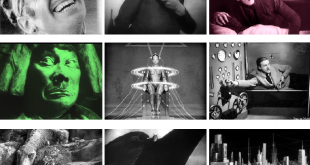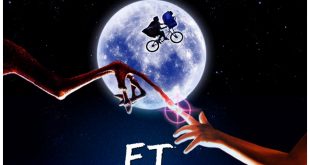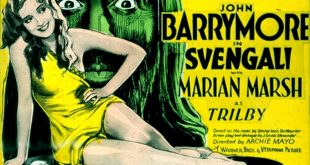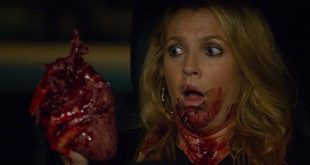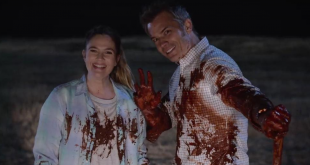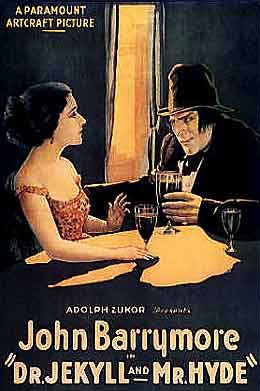 You know, my old friend John Barrymore was one of the most fascinating characters in film and theatre during the last century. He was son of stage actors Maurice Barrymore and Georgiana Drew Barrymore, and his siblings Ethel Barrymore and Lionel Barrymore also had extensive film careers. John made his stage debut in 1900, and quickly became a matinee idol. He entered films in 1913, thanks to the invention of the cinematograph, and although he eventually gave up the stage, it was really his first true love. His Hamlet was widely acclaimed and plans were made to film it, but they came to nothing.
You know, my old friend John Barrymore was one of the most fascinating characters in film and theatre during the last century. He was son of stage actors Maurice Barrymore and Georgiana Drew Barrymore, and his siblings Ethel Barrymore and Lionel Barrymore also had extensive film careers. John made his stage debut in 1900, and quickly became a matinee idol. He entered films in 1913, thanks to the invention of the cinematograph, and although he eventually gave up the stage, it was really his first true love. His Hamlet was widely acclaimed and plans were made to film it, but they came to nothing.
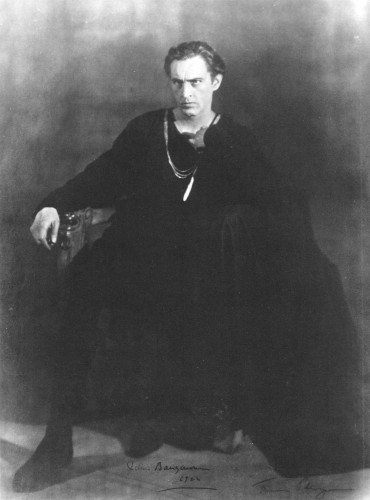 However, it was thanks to these plans that I first met John Barrymore. I had already played Yorick in two films, opposite Johnston Forbes-Robertson in 1913, and then with Asta Nielsen in 1920. A number of reviewers generously called me the definitive Yorick. Teaming the definitive Yorick with the definitive Hamlet was an obviously good idea but alas, it wasn’t to be. I never actually worked with John, but that may have been for the best, as he was notoriously difficult to work with. At the end of filming A Bill Of Divorcement (1932), Katie Hepburn said “Thank goodness I don’t have to act with him anymore!” to which he replied “I didn’t know you ever had!”
However, it was thanks to these plans that I first met John Barrymore. I had already played Yorick in two films, opposite Johnston Forbes-Robertson in 1913, and then with Asta Nielsen in 1920. A number of reviewers generously called me the definitive Yorick. Teaming the definitive Yorick with the definitive Hamlet was an obviously good idea but alas, it wasn’t to be. I never actually worked with John, but that may have been for the best, as he was notoriously difficult to work with. At the end of filming A Bill Of Divorcement (1932), Katie Hepburn said “Thank goodness I don’t have to act with him anymore!” to which he replied “I didn’t know you ever had!”
 During the twenties he made several entertaining swashbucklers, but after the early thirties John frequently parodied himself in his own films. It probably comes as no surprise that the more he overacted, the further his career declined. John had been a drinker from his teenage years onward and, sadly, alcoholism dominated the last years of his life, but I can personally report that amongst his many talents was his ability to remain devastatingly witty while plastered.
During the twenties he made several entertaining swashbucklers, but after the early thirties John frequently parodied himself in his own films. It probably comes as no surprise that the more he overacted, the further his career declined. John had been a drinker from his teenage years onward and, sadly, alcoholism dominated the last years of his life, but I can personally report that amongst his many talents was his ability to remain devastatingly witty while plastered.
 Yes, it’s true, this John Barrymore is the grandfather of Drew Barrymore, whose acting frightens us for entirely the wrong reasons. But I hasten to point out that John Barrymore passed away in 1942, over thirty years before Drew was born, so those of you who demand a written apology from him will have to wait in vain.
Yes, it’s true, this John Barrymore is the grandfather of Drew Barrymore, whose acting frightens us for entirely the wrong reasons. But I hasten to point out that John Barrymore passed away in 1942, over thirty years before Drew was born, so those of you who demand a written apology from him will have to wait in vain.
 When little Drew Barrymore, as Gertie, came face-to-face with E.T: The Extra-Terrestrial (1982) she let out a high-pitched scream heard around the world and at the box office. She was only seven years old and already calling her movie-brother “Penis Breath.” But the youngest member of the Barrymore acting dynasty can be seen plying the family trade even earlier, at age five, in Ken Russell’s Altered States (1980). As Maggie Jessup, the youngest daughter of scientists William Hurt and Blair Brown, Drew faced such acting challenges as being put to bed, riding on Hurt’s shoulders, racing her sister to answer the phone first, and entering a room while mum and dad are having a fight.
When little Drew Barrymore, as Gertie, came face-to-face with E.T: The Extra-Terrestrial (1982) she let out a high-pitched scream heard around the world and at the box office. She was only seven years old and already calling her movie-brother “Penis Breath.” But the youngest member of the Barrymore acting dynasty can be seen plying the family trade even earlier, at age five, in Ken Russell’s Altered States (1980). As Maggie Jessup, the youngest daughter of scientists William Hurt and Blair Brown, Drew faced such acting challenges as being put to bed, riding on Hurt’s shoulders, racing her sister to answer the phone first, and entering a room while mum and dad are having a fight.
 Playing cute Gertie in E.T: The Extra-Terrestrial solidified Drew’s image as a sweet, sparkling child, even though she followed up that movie with Firestarter (1984), in which she is able to spark fires at will. In fact the E.T. image was so indelible, and Drew so closely associated with it, I was all the more astonished when she blossomed into an over-ripe sex kitten. First in Far From Home (1989), in which her sluttish ways attract all the wrong elements in a small town, then more spectacularly in Poison Ivy (1992), in which she seduces and disables the members of her best friend’s family so she can ultimately have the daddy all to herself.
Playing cute Gertie in E.T: The Extra-Terrestrial solidified Drew’s image as a sweet, sparkling child, even though she followed up that movie with Firestarter (1984), in which she is able to spark fires at will. In fact the E.T. image was so indelible, and Drew so closely associated with it, I was all the more astonished when she blossomed into an over-ripe sex kitten. First in Far From Home (1989), in which her sluttish ways attract all the wrong elements in a small town, then more spectacularly in Poison Ivy (1992), in which she seduces and disables the members of her best friend’s family so she can ultimately have the daddy all to herself.
 After a well-publicised bout with drugs and alcohol, Drew has emerged as a sex goddess, the driving force behind the popular Charlie’s Angels (2000) comedies, and the producer and financier of independent films like the instant cult classic Donnie Darko (2001), all the way up to the recent box office hit He’s Just Not That Into You (2009). Perhaps saying “Penis Breath” was an indication of things to come. Anyway, please join me next week when I have the opportunity to inflict upon you the tortures of the damned from that dark, bottomless pit known as…Horror News! Toodles!
After a well-publicised bout with drugs and alcohol, Drew has emerged as a sex goddess, the driving force behind the popular Charlie’s Angels (2000) comedies, and the producer and financier of independent films like the instant cult classic Donnie Darko (2001), all the way up to the recent box office hit He’s Just Not That Into You (2009). Perhaps saying “Penis Breath” was an indication of things to come. Anyway, please join me next week when I have the opportunity to inflict upon you the tortures of the damned from that dark, bottomless pit known as…Horror News! Toodles!
 Horror News | HNN Official Site | Horror Movies,Trailers, Reviews
Horror News | HNN Official Site | Horror Movies,Trailers, Reviews

